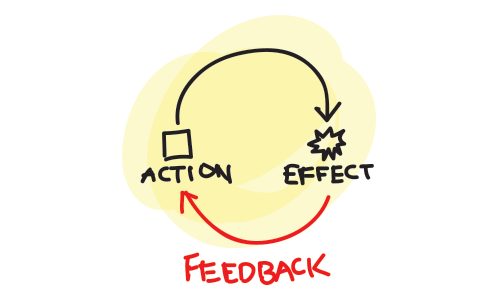The other day I fell down a rabbit hole. A big wide, gaping Facebook-shaped chasm. You see, I had been occasionally seeing ads for an online MBA program at another university. Not that I am thinking of getting another MBA, mind you.
It’s just that I am on the Marketing & Public Relations Committee in the College of Business, and one of our tasks is to—well—promote the COB. We had just bought that full-page ad for the rest of the season for the Dallas Mavericks and Dallas Stars programs, so I was in thinking mode about what else we could do, as well as what others are doing.
Taking The Bait
So I took the bait and clicked the “Learn More” button. Big mistake, because it unleashed the fury of Meta’s AI. I can just see bells and whistles going off at headquarters as their algorithm reports to humans: Gerlich’s interested in an online MBA! Let’s serve him dozens of ads from other schools selling the exact same thing!”
And so they did. And not just for MBAs, but for every manner of graduate degrees, including doctorates (got one of them too, thanks very much). My online experience has gone far downhill, and it’s all because I tapped one thing, just one thing, curiosity getting the better of me. After all, our committee meets today, and I wanted to be able to share information. Now I can share an entire experience.
Feedback, Please
You see, it’s all because of the feedback loops that AI uses. The line of thinking (and it must also be a very short line of code) is that if a person likes a little bit of something, surely they would like a ton more. We see this all the time thanks to retargeting as well. That’s when we do a Google search for something, and suddenly everybody and their brother is advertising it to us. Thank you very little, Google. You sold that little grain of knowledge in a nanosecond, didn’t you?

Facebook and Instagram use a similar type of AI to fill our feed with the people we are already interacting with on some level. That high school peer you haven’t interacted with online in years? To the back of the bus.
Play Me A Song
But feedback loops are elsewhere too, like at Spotify, where it can be hard to break out of their AI. Our playlists tell Spotify a lot about our listening pleasures, and it keeps track of everything we do. That’s how it can manage to send us the annual year-in-review in December detailing how much we listened, our most-listened-to songs, favorite artists, and much more.
And then Spotify likes to create “new” playlists or “stations” for us, based on our listening. Guess what? It has a lot of the same artists and even songs that we have already been listening to, occasionally seasoned in a Pandora kind of way other artists that are a lot like what we already listen to.
Netflix and the other video streamers do it too as they try to build user-friendly profiles based on our viewing history. It assumes we will only want more of the same, like if you eat the same damn thing for breakfast every day (guilty as charged).
Yeah, It’s A Problem
It’s a big enough problem that Wired Magazine recently posted an article about it, and how to beat it. Essentially, the only thing you can do is fake a handoff to a running back, and then run the ball yourself in a different direction. Or, in other words, just search on some random artists, or genres, and let Spotify figure it out.
Which means, of course, we can pull the same stunt on our socials by searching for a long-forgotten follower, or Googling crazy products we have no interest in buying. And do it many times to really muddy the AI waters. They’ll be scratching their heads.
In some regards, this could be the necessary cleanse our online experiences need. It’ll be nearly like starting anew, but without losing your playlists or friends. Sounds like a great weekend project.
Just don’t fall down any rabbit holes in the process. They can be hard to climb out of.
Dr “Be Careful What You Tap“ Gerlich


